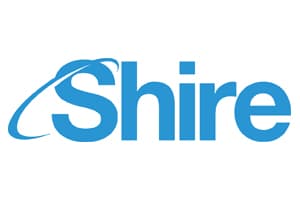
Shire has the US approval it needs for Motegrity, a drug for chronic idiopathic constipation (CIC) that will compete with drugs like Allergan’s Linzess and Synergy’s Trulance.
The FDA’s backing was expected after an advisory committee voted unanimously to approve Motegrity (prucalopride) for CIC two months ago, and it will be the first once-daily selective serotonin 5-HT4 receptor agonist drug for the condition when it launches in 2019.
The positive panel vote laid to rest lingering concerns about the safety of prucalopride that first surfaced more than a decade ago and centred around potential cardiovascular reactions linked to other drugs in the 5-HT4 agonist class – even though it has been approved for years in Europe as Resolor.
FDA approval makes Motegrity an option for the estimated 35 million people with CIC in the US, and it is the first drug available for that indication that works by enhancing colonic peristalsis to increase bowel motility, according to Shire. It acquired prucalopride when it took over Belgian company Movetis in 2010.
Linzess (linaclotide) – which brought in almost $575m in sales for Allergan in the first nine months of the year – works by binding to intestinal epithelial cells and stimulating the secretion of water into the intestinal lumen. It has the same mechanism as Trulance (plecanatide), which was approved by the FDA to treat CIC in January 2017 and brought in around $32m in the same period.
Bausch Health (formerly Valeant) has just launched a bid for the company on the premise that it will be able to kick start sales of Trulance, Synergy’s only-approved product, so it will likely not be happy to see additional competition enter the market.
The approval for the new product comes as Shire is just about to be acquired by Takeda in a $62bn deal, and it ticks another box for the Japanese drugmaker, which wants Shire to help flesh out its weak product pipeline.
Shire isn’t viewed as having a particularly strong late-stage pipeline, but it recently picked up additional approvals for Vonvendi/Veyvondi for von Willebrand disease and its hereditary angioedema (HAE) therapy Cinryze, and has also just had a positive verdict for Takhzyro (lanadelumab) for HAE from the FDA.
Another late-stage candidate – calaspargase pegol (SHP663) for the treatment of acute lymphoblastic leukaemia (ALL) – is also under regulatory review.




